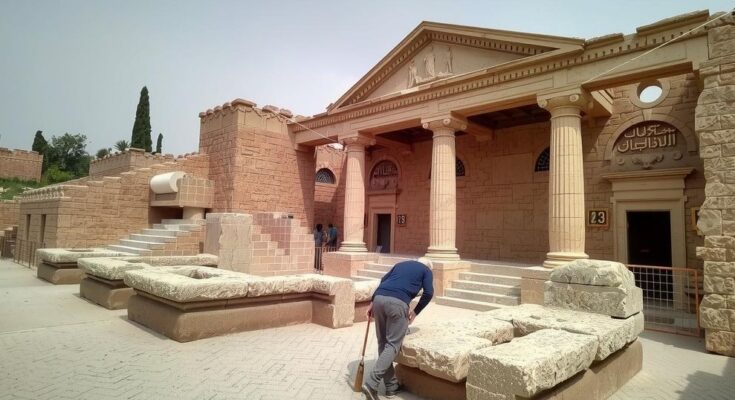Human Rights Watch urges for the protection and investigation of a mass grave in Damascus, identified as a site of serious war crimes. The grave’s discovery, which contains numerous human remains, highlights extreme violations of human rights and the need for immediate action by transitional authorities to secure evidence and ensure accountability for the victims.
Human Rights Watch has raised urgent concerns regarding a mass grave discovered in the Tadamon neighborhood of Damascus, Syria, which is believed to be a site of significant war crimes and summary executions carried out by government forces. An investigative visit by the organization in December 2024 revealed numerous human remains and critical evidence suggesting that the site had been undisturbed since the atrocities occurred in 2013. As the area potentially holds evidence of systemic abuses under the ousted Assad regime, immediate actions to secure and investigate the site are vital for achieving accountability for the victims’ families.
The mass grave, geolocated from a previously leaked video exhibiting summary executions, emphasizes the need for transitional authorities in Syria to act swiftly to preserve evidence of such heinous acts committed against civilians. The testimonies of local residents indicate that extrajudicial killings were commonplace, further substantiating the allegations of mass violence in the region. Additionally, a spatial investigation helped construct a 3D model of the grave site, enhancing the understanding of its dimensions and contents.
During a comprehensive investigation that began in October 2021, Human Rights Watch documented accounts from Tadamon residents detailing their forced involvement in the burial of bodies, as pro-government paramilitary groups exerted control over the area. Disturbingly, several residents have reported missing family members believed to have fallen victim to similar acts of violence. The conclusions drawn from the site highlight the wider pattern of unlawful tactics employed by the Assad regime to eliminate perceived opposition, which included arbitrary arrests and use of forceful displacement.
Human Rights Watch calls upon the transitional authorities of Syria to collect and safeguard vital evidence pertinent to potential future legal proceedings against those responsible for the Tadamon massacres. The organization emphasizes the necessity of cooperation with international bodies, such as the International Committee of the Red Cross, in rendering expertise to conserve such significant historical evidence. It is imperative that the international community extends support to these efforts to ensure proper accountability is achieved for the heinous crimes committed in Syria.
The situation surrounding the mass grave in Tadamon is a reflection of the broader context of human rights violations that occurred during the Syrian civil war, characterized by systematic extrajudicial killings orchestrated by the Assad regime. This tragic discovery is part of a larger investigation into massacre sites across Syria, where thousands of innocent civilians suffered under state-sanctioned violence. The international community has long been concerned about accountability for these war crimes, as robust documentation and evidence are crucial for prosecuting those responsible.
In summary, the mass grave in Damascus underscores the critical necessity for thorough investigation and preservation of evidence related to war crimes committed in Syria. The testimonies and findings of Human Rights Watch serve to highlight the urgent need for transitional authorities to act swiftly, ensuring accountability and providing closure for the victims’ families. Collaborative international efforts must support these endeavors to safeguard evidence and ultimately ensure justice for the atrocities committed under the previous regime.
Original Source: www.hrw.org




